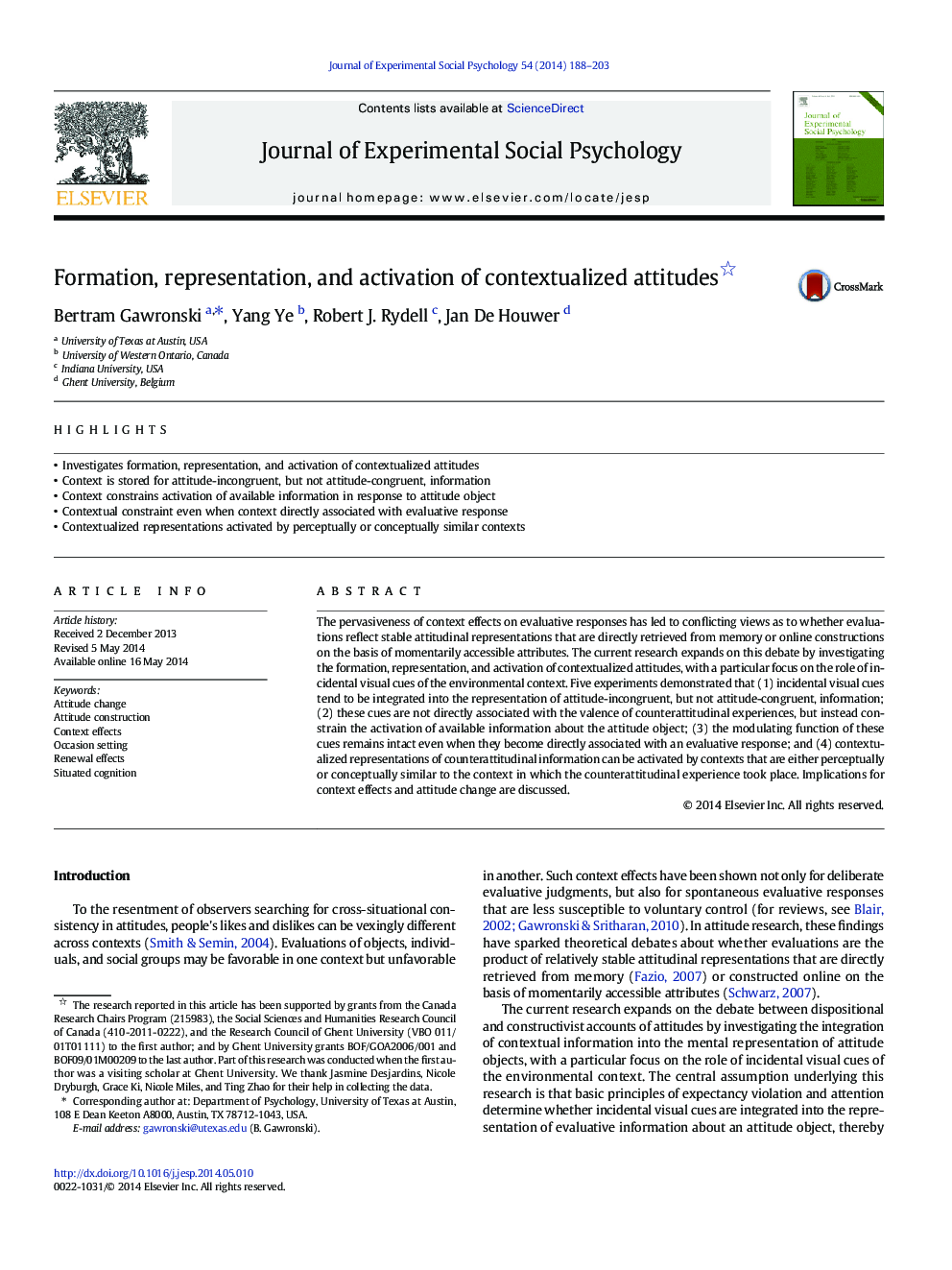| Article ID | Journal | Published Year | Pages | File Type |
|---|---|---|---|---|
| 947814 | Journal of Experimental Social Psychology | 2014 | 16 Pages |
•Investigates formation, representation, and activation of contextualized attitudes•Context is stored for attitude-incongruent, but not attitude-congruent, information•Context constrains activation of available information in response to attitude object•Contextual constraint even when context directly associated with evaluative response•Contextualized representations activated by perceptually or conceptually similar contexts
The pervasiveness of context effects on evaluative responses has led to conflicting views as to whether evaluations reflect stable attitudinal representations that are directly retrieved from memory or online constructions on the basis of momentarily accessible attributes. The current research expands on this debate by investigating the formation, representation, and activation of contextualized attitudes, with a particular focus on the role of incidental visual cues of the environmental context. Five experiments demonstrated that (1) incidental visual cues tend to be integrated into the representation of attitude-incongruent, but not attitude-congruent, information; (2) these cues are not directly associated with the valence of counterattitudinal experiences, but instead constrain the activation of available information about the attitude object; (3) the modulating function of these cues remains intact even when they become directly associated with an evaluative response; and (4) contextualized representations of counterattitudinal information can be activated by contexts that are either perceptually or conceptually similar to the context in which the counterattitudinal experience took place. Implications for context effects and attitude change are discussed.
